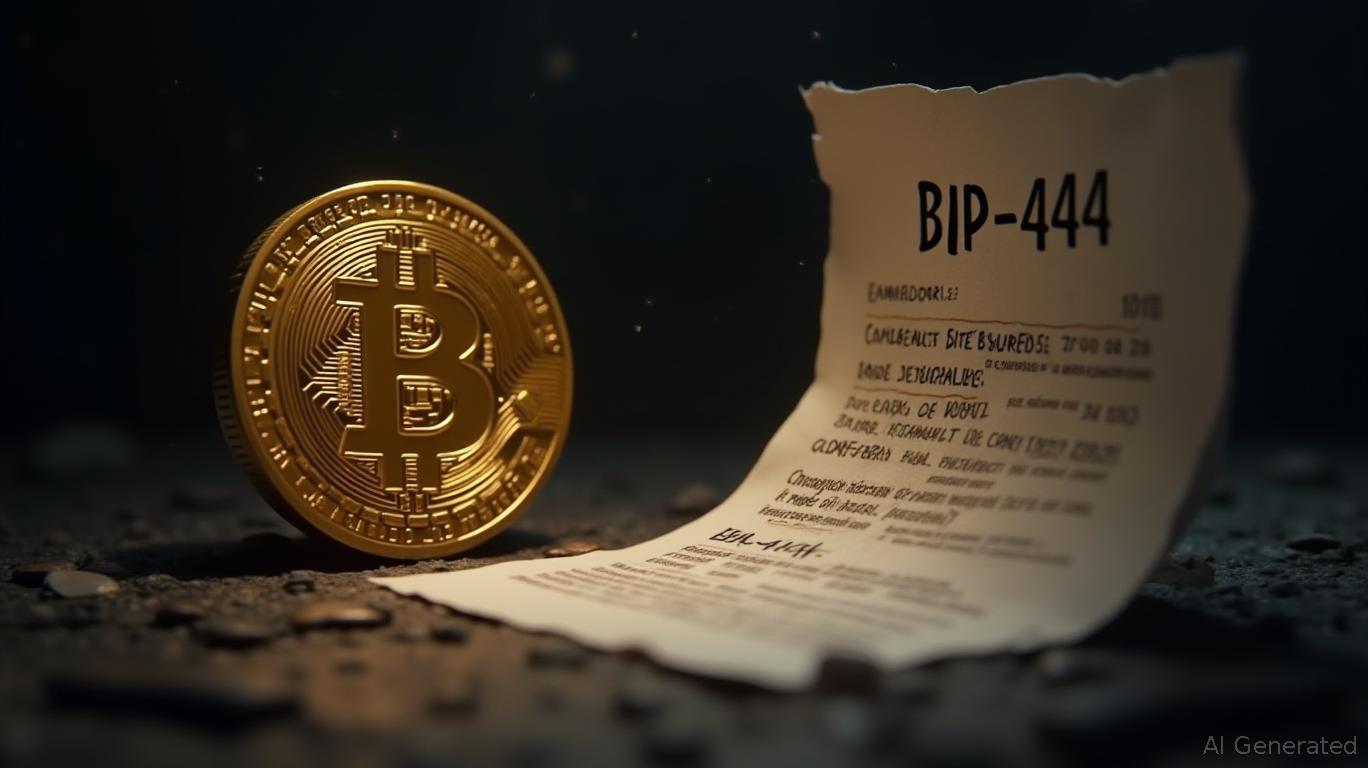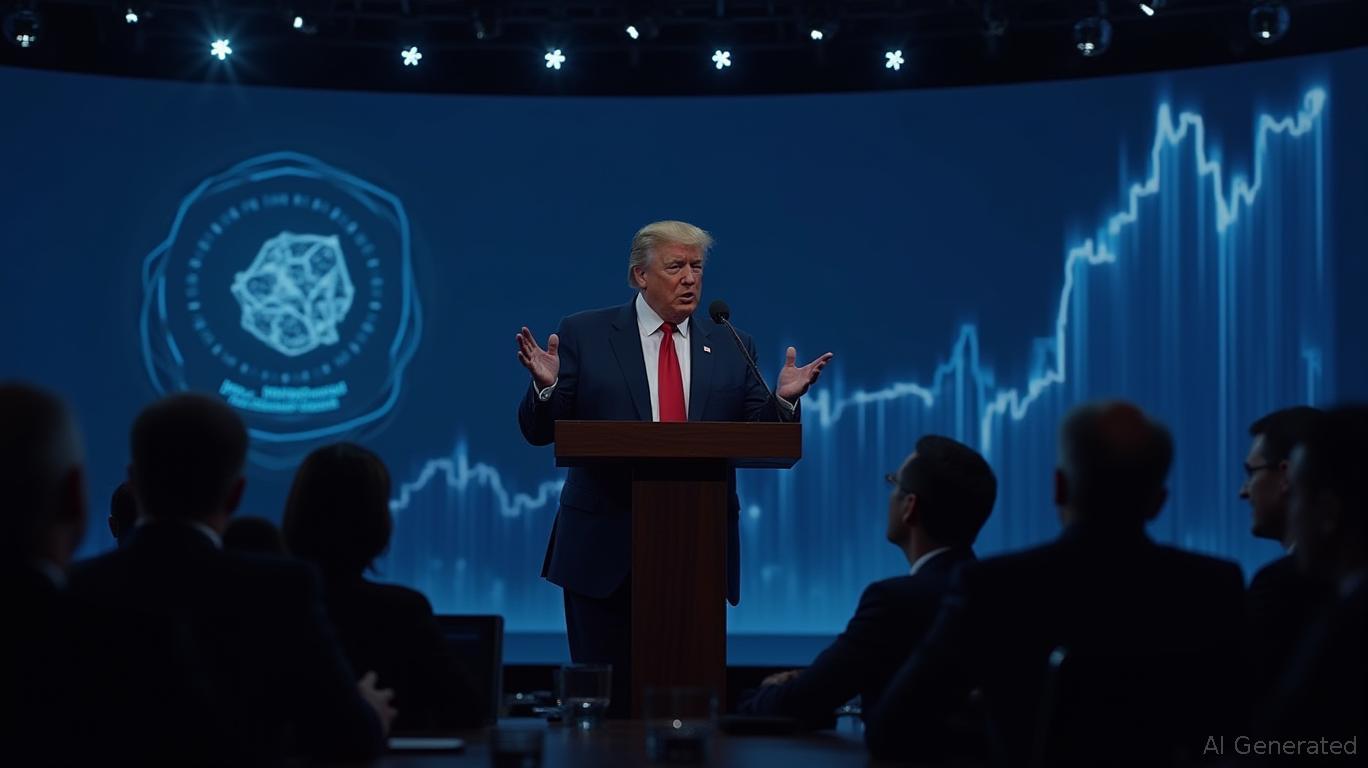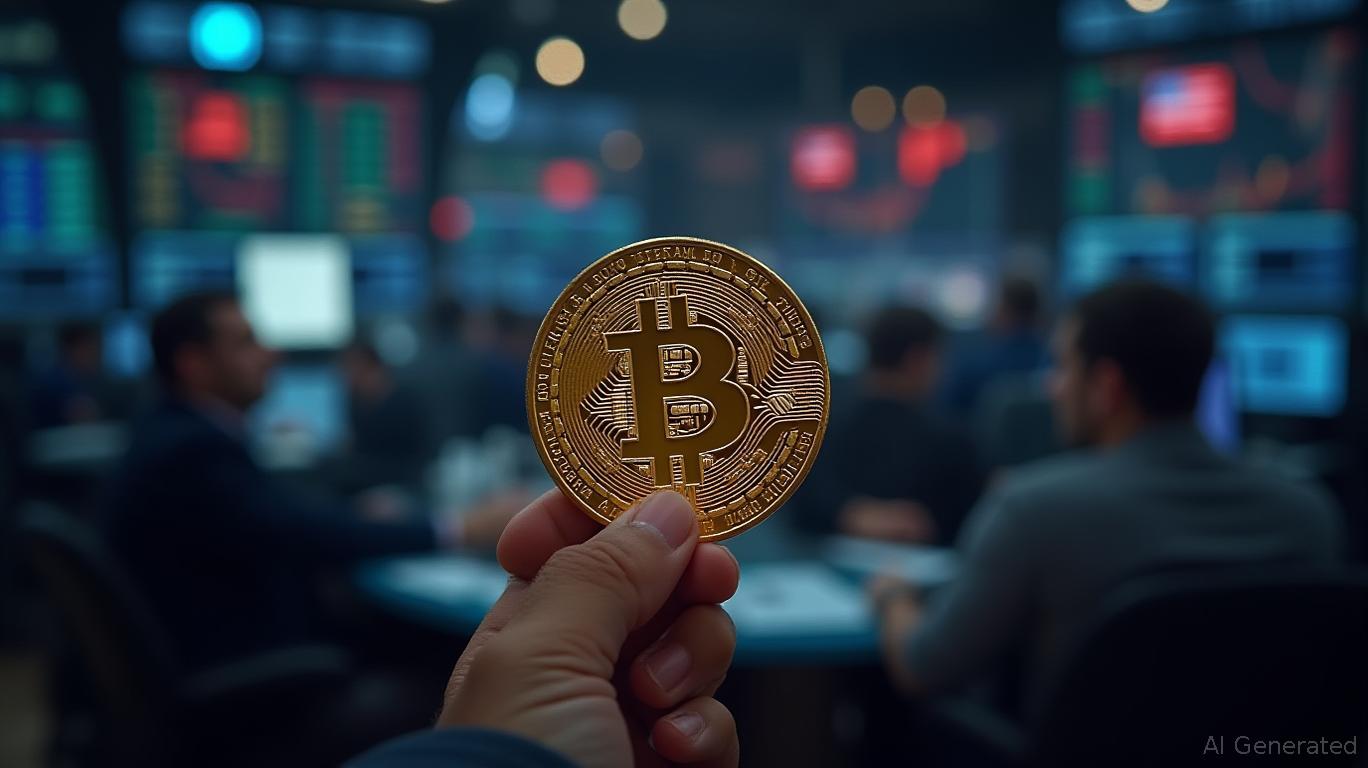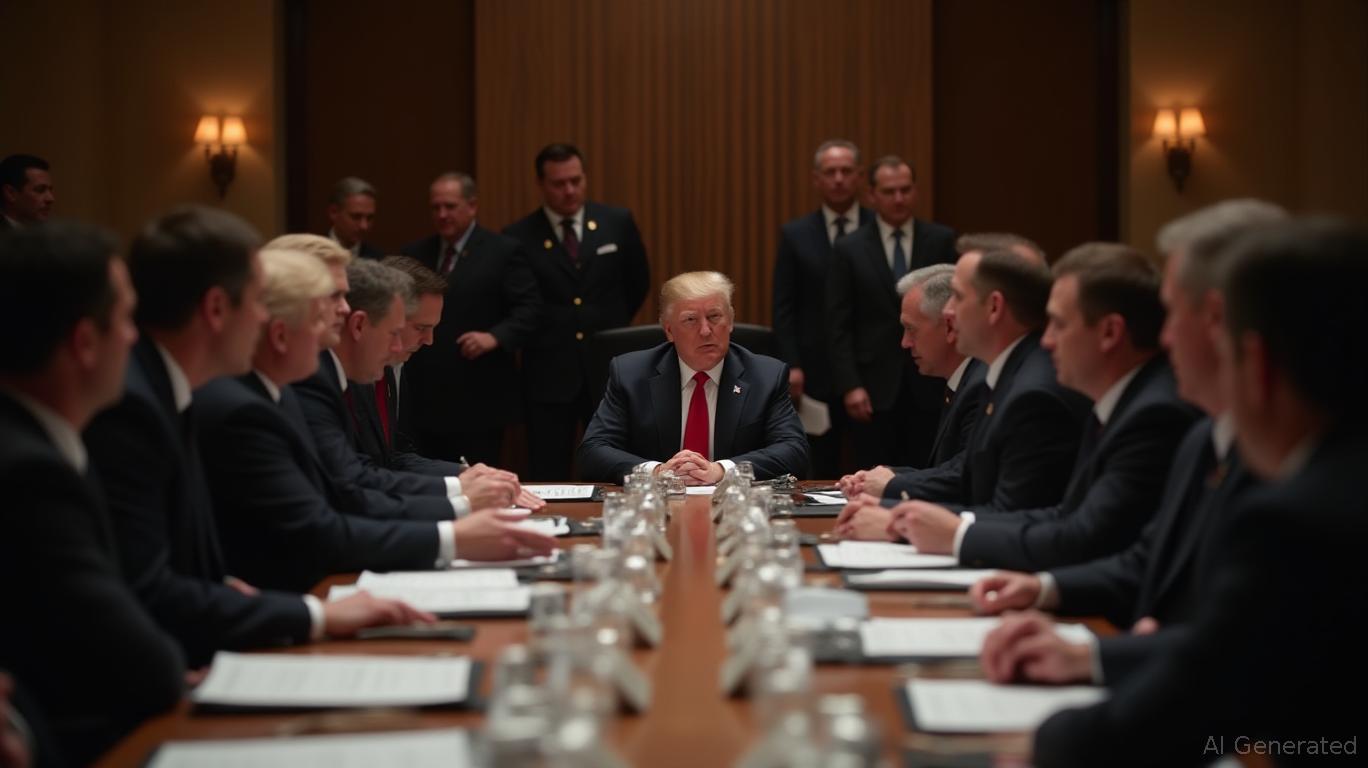Bitcoin News Today: Is Bitcoin's BIP-444 a Step Toward Enhanced Security or a Threat to Decentralization?
- Bitcoin's BIP-444 proposal seeks temporary data storage limits to curb spam and legal risks for node operators. - Supporters argue it prevents liability for illegal content, while critics call it censorship against Bitcoin's permissionless ethos. - The anonymous proposal faces skepticism over authorship and bypasses formal adoption channels despite social media traction. - Critics warn temporary restrictions could become permanent, stifling innovation while proponents emphasize security-first governance.
BIP-444 Proposal for Bitcoin Sparks Controversy Over Blockchain Data Restrictions
The

Published on October 18, 2025, the proposal follows the v30 update of Bitcoin Core, which eliminated strict limits on data added to transactions through OP_RETURN as long as adequate fees are paid, according to a
. While this update was intended to provide greater flexibility, it has also led to a surge in NFTs, memecoins, and other data-intensive uses. BIP-444 would set firm limits—83 bytes for OP_RETURN and 34 bytes for other script data—effectively blocking techniques like Ordinals inscriptions, while giving developers a year to find lasting solutions.Advocates believe the proposal is essential to shield node operators from legal consequences for storing prohibited material, such as child sexual abuse content. "Node operators are put in a position where they must either break the law or shut down their nodes," the proposal warns, suggesting this could threaten decentralization and weaken Bitcoin’s security, as reported by TradingView. Veteran developer Luke Dashjr, a vocal critic of Ordinals, has backed the proposal, describing it as "super simple" and sufficient to allow time for a more permanent answer.
Opponents, on the other hand, see the proposal as undermining Bitcoin’s open-access principles. They point out that the ability to store arbitrary data has existed since Bitcoin’s beginning, and restricting it amounts to censorship. Casa co-founder Jameson Lopp noted the absence of clear definitions for "illegal content" and mentioned that legal experts disagree on node operators’ responsibilities, according to TradingView. Ordinals supporter Leonidas cautioned that normalizing such restrictions could set a troubling precedent, likening it to government-imposed monetary censorship in a
.The anonymous creator of the proposal, "Dathon Ohm," has no established background in Bitcoin development, raising doubts about its legitimacy, as noted by TradingView. Although Dashjr denied being the author, the proposal has gained momentum on social media and forums, bypassing official venues like the Bitcoin Development Mailing List, which is necessary for wider acceptance, according to CoinhubExchange.
Despite being intended as a one-year measure, BIP-444’s temporary status has not eased critics’ worries. Some fear it could become a permanent fixture, hindering future innovation. Supporters argue that the limited duration provides an opportunity to develop consensus-based alternatives without endangering network security. This debate highlights a larger struggle within Bitcoin: finding the right balance between decentralization and effective governance.
As these discussions continue, the outcome of the proposal is still unclear. Its implementation depends on the backing of miners and node operators, with reports from Ordinals supporters cited by CoinhubExchange suggesting that more than half of Bitcoin’s hash rate is willing to process transactions if fees are sufficient.
Disclaimer: The content of this article solely reflects the author's opinion and does not represent the platform in any capacity. This article is not intended to serve as a reference for making investment decisions.
You may also like
Trump’s Innovation Strategy Fueled by Unified Crypto Oversight and Advancements in AI
- Trump nominated SEC crypto task force chief Michael Selig to lead CFTC, aiming to unify cryptocurrency regulation and clarify agency authority over digital assets. - Port3 Network expanded Web3 AI infrastructure through five strategic partnerships, enhancing agent development and security while participating in industry growth discussions. - Defense AI firm BigBear.ai saw 300% stock growth from military contracts and airport tech, despite $228.6M losses, with $390M cash reserves supporting future expansi

Mystery Wallet Aligns $5M Fartcoin Wager With Expectations of Fed Rate Reduction
- A 0x71a0 wallet holds $5M in Fartcoin (FARTCOIN) with strategic $0.6–$1 take-profit orders, reflecting speculative positioning ahead of the Fed's rate decision. - Fartcoin surged 20% from October lows, showing bullish divergence and potential retest of $0.40 support, a key level for trend validation. - The Fed's expected 25-basis-point cut and end of quantitative tightening could boost risk assets, with Bitcoin's open interest spiking to $37.63B. - Institutional-like positioning contrasts with retail cau

Trump, Musk Temporarily Set Aside Dispute to Prioritize Key Objectives
- Trump downplays feud with Musk, calling it a "stupid moment" and reaffirming personal affection for the CEO. - Tensions eased after June 2025 disputes over "Big Beautiful Bill" and Musk's DOGE exit, with Musk reducing public critiques post-September memorial event. - Musk faces Tesla shareholder scrutiny over $1 trillion compensation package, while Trump's endorsement could bolster his position amid operational challenges. - Both prioritize stability over confrontation, with Trump's Asia tour and potenti

Bitcoin News Update: The Contrasting Sides of Crypto—MegaETH Soars by $530M Despite Regulatory Challenges and Market Volatility
- MegaETH's $530M public sale, with 18,590 addresses, marks crypto's largest decentralized fundraising to date, showcasing blockchain's growing institutional and retail appeal. - Institutional adoption accelerates as Bitcoin startups secure $10M+ funding, while SPACs like Miluna bridge traditional markets and crypto-native ventures through $60M IPOs. - XRP's 40% plunge and SEC delays highlight crypto's volatility, while China's stablecoin crackdown contrasts Hong Kong's cautious openness to innovation. - D
